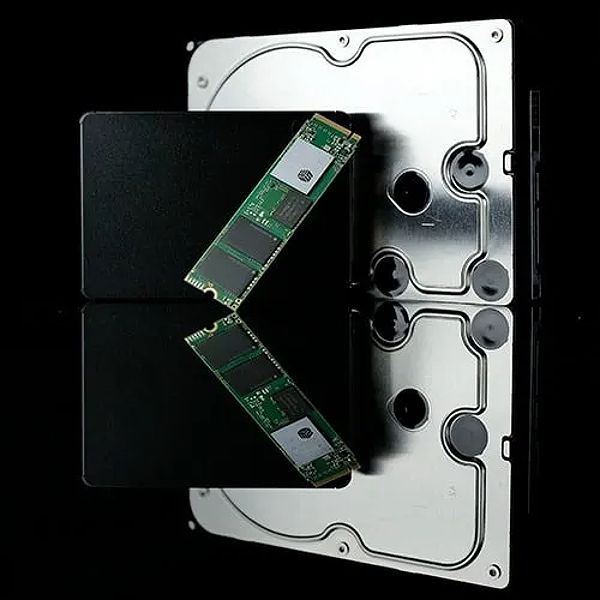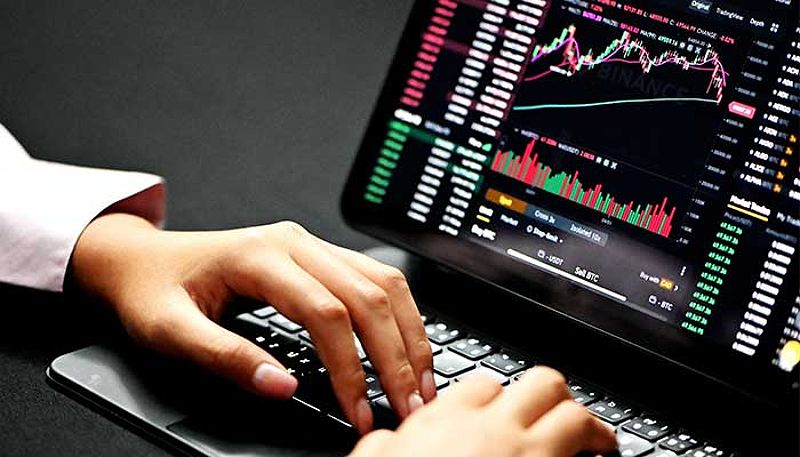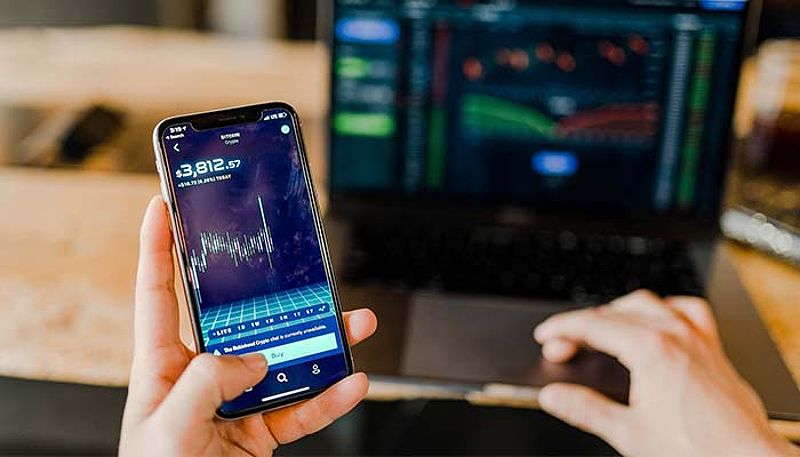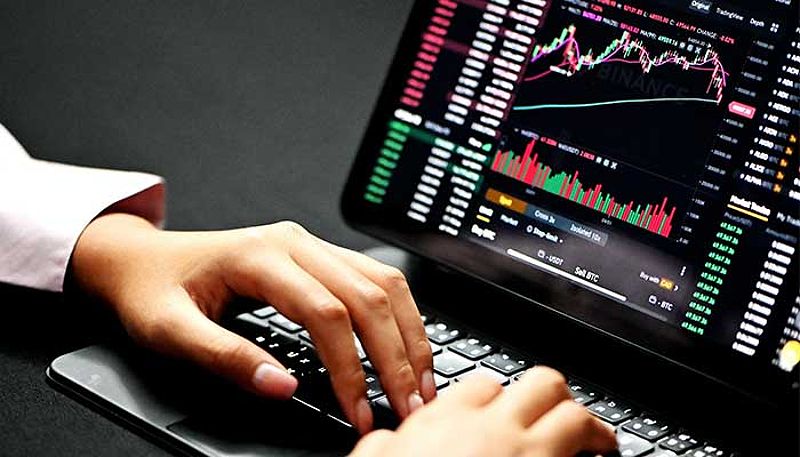Finding the Best Budget Laptop for Crypto Trading
As a seasoned crypto trader, I know the importance of having the right hardware to navigate the volatile and exciting world of digital assets. While some may tout the power of high-end desktop setups, I’ve found that a well-equipped budget laptop can be an equally viable, if not a more practical, choice for beginner and intermediate traders like myself.
The freedom to trade from anywhere, at any time, is the primary appeal of a laptop setup. Unlike the tethered nature of a desktop, a laptop allows me to monitor the markets, execute trades, and conduct research from the comfort of my home, a cozy café, or even while traveling. This mobility is invaluable, as it enables me to stay agile and responsive to the ever-changing cryptocurrency landscape.
Moreover, the cost-effectiveness of a budget laptop is a significant advantage, especially for those just starting their crypto trading journey. While desktops may offer raw processing power, they often come with a hefty price tag that can be a deterrent for those on a tight budget. In contrast, a well-chosen budget laptop can provide the essential features I need to thrive as a trader, without breaking the bank.
Choosing the Best Budget Laptop for Crypto Trading
When it comes to finding the best budget laptop for crypto trading, there are several key components I’ve learned to prioritize. Let’s dive into the essential features that will ensure your budget-friendly laptop is up to the task.
Processor: The Heart of the Matter
At the core of any capable crypto trading laptop is the processor, or the Central Processing Unit (CPU). I’ve found that a multi-core processor is a must, as it allows me to juggle multiple trading applications, research tools, and data-intensive tasks with ease. My personal recommendation is to aim for a quad-core processor with a clock speed of at least 2.8 GHz, such as an Intel Core i3 or AMD Ryzen 3 chipset. These processors strike a balance between performance and affordability, ensuring a smooth trading experience without breaking the bank.
RAM: Multitasking Muscle
Random Access Memory (RAM) plays a crucial role in the overall performance of my crypto trading setup. To ensure seamless multitasking and the ability to run various applications simultaneously, I suggest a minimum of 8GB of RAM. However, if your budget allows, opting for 16GB of RAM will provide an even more responsive and efficient experience, allowing you to switch between your trading platform, analysis tools, and other essential programs with lightning-fast speed.
Storage: Fast and Reliable
When it comes to storage, I’ve learned that a solid-state drive (SSD) is an absolute must-have, regardless of your budget. SSDs offer lightning-fast boot times, quick file access, and reliable performance, making them an invaluable asset for a crypto trader like myself. I recommend a minimum of 256GB of SSD storage, which should provide ample space for your trading software, market data, and other essential files.
 SSD Hard Drive
SSD Hard Drive
Display: Crystal-Clear Clarity
A clear and sharp display is paramount for effective crypto trading. I’ve found that a screen size of at least 13.3 inches with a Full HD (1920×1080) resolution is the sweet spot for my needs. This display size and resolution allows me to comfortably view my trading charts, indicators, and market data without straining my eyes or squinting at a tiny screen.
Battery Life: Untethered Trading
As a crypto trader who’s often on the move, battery life is a crucial consideration. I aim for a laptop that can last at least 5 hours on a single charge, ensuring I can trade without constantly searching for a power outlet. This level of battery life provides me with the freedom to work from wherever inspiration strikes, whether it’s a cozy cafe or a quiet corner of the park.
Ports: Connectivity Essentials
To seamlessly connect my trading accessories, such as external monitors, USB drives, and other peripherals, I look for a laptop with a comprehensive set of ports. At a minimum, my budget laptop must have one HDMI port, two USB-A ports, and one USB-C port. This versatile array of connectivity options allows me to customize my trading setup to suit my needs, without feeling limited by port availability.
Recommended Budget Laptops for Crypto Trading
Now that you understand the essential features to look for, let’s explore some of the best budget laptops for crypto trading that I’ve personally vetted and can recommend.
1- Acer Aspire 5
- Processor: Intel Core i3-1115G4 (6-core, up to 4.1 GHz)
- RAM: 8GB DDR4
- Storage: 256GB SSD
- Display: 15.6-inch Full HD IPS
- Battery Life: Up to 8 hours
- Ports: 2 x USB 3.2 Gen 1, 1 x HDMI, 1 x USB-C
The Acer Aspire 5 has been a reliable workhorse in my crypto trading arsenal. Its Intel Core i3 processor and 8GB of RAM provide ample power for running my trading platforms and analysis tools with ease. The 256GB SSD ensures lightning-fast boot-ups and snappy file access, while the 15.6-inch Full HD display offers a comfortable and immersive viewing experience. What I love most about this budget-friendly laptop is its impressive battery life of up to 8 hours, which allows me to trade on the go without constantly searching for a power outlet.
2- Dell Inspiron 15 3000
- Processor: AMD Ryzen 3 3250U (Dual-core, up to 3.5 GHz)
- RAM: 8GB DDR4
- Storage: 256GB SSD
- Display: 15.6-inch HD (1366 x 768)
- Battery Life: Up to 7 hours
- Ports: 2 x USB 3.2 Gen 1, 1 x HDMI, 1 x USB-C
The Dell Inspiron 15 3000 is another budget-friendly option that has caught my eye. Powered by an AMD Ryzen 3 processor, 8GB of RAM, and a 256GB SSD, this laptop provides a solid foundation for my crypto trading activities. While the display resolution is HD (1366 x 768) rather than Full HD, I’ve found the screen to be more than adequate for my needs, allowing me to clearly track my trades and market data. The battery life of up to 7 hours also ensures I can work remotely without constantly worrying about finding a power source.
 Dell Inspiron 15 3000
Dell Inspiron 15 3000
3- Lenovo IdeaPad 3
- Processor: Intel Core i3-1115G4 (6-core, up to 4.1 GHz)
- RAM: 8GB DDR4
- Storage: 256GB SSD
- Display: 14-inch Full HD IPS
- Battery Life: Up to 7.5 hours
- Ports: 2 x USB 3.2 Gen 1, 1 x HDMI, 1 x USB-C
The Lenovo IdeaPad 3 has been a standout choice in my search for the perfect budget crypto trading laptop. Its compact 14-inch form factor, coupled with the Intel Core i3 processor, 8GB of RAM, and 256GB SSD, provides a well-rounded package that meets my needs. The Full HD IPS display offers exceptional clarity and color accuracy, making it a breeze to monitor my trades and market data. With a battery life of up to 7.5 hours, I can confidently trade throughout the day without being tethered to a power outlet.
 Lenovo IdeaPad 3
Lenovo IdeaPad 3
4- HP 14
- Processor: AMD Ryzen 3 3250U (Dual-core, up to 3.5 GHz)
- RAM: 8GB DDR4
- Storage: 256GB SSD
- Display: 14-inch Full HD IPS
- Battery Life: Up to 8 hours
- Ports: 2 x USB 3.2 Gen 1, 1 x HDMI, 1 x USB-C
The HP 14 is another budget-friendly option that has caught my attention in the world of crypto trading laptops. Its AMD Ryzen 3 processor, 8GB of RAM, and 256GB SSD provide a solid foundation for my trading needs. The 14-inch Full HD IPS display ensures I can view my charts, indicators, and market data with clarity and precision. What I appreciate most about the HP 14 is its impressive battery life of up to 8 hours, allowing me to trade confidently throughout the day without worrying about constantly searching for a power source.
Optimizing Your Budget Laptop for Crypto Trading
To ensure your budget laptop runs at its best for your crypto trading endeavors, here are a few tips I’ve found to be particularly helpful:
- Close Unnecessary Applications: Identify and close any background applications or processes that are not essential for your trading activities. This will help free up system resources and improve overall performance.
- Utilize a Lightweight OS: Consider installing a lightweight operating system, such as a Linux distribution, to optimize your laptop’s performance. These operating systems often have lower resource requirements, allowing your budget laptop to run more efficiently.
- Use a Cooling Pad: Invest in a cooling pad with multiple fans to prevent your laptop from overheating during extended trading sessions. This will help maintain consistent performance and extend the lifespan of your device.
- Protect Your Data with a VPN: To enhance the security of your trading activities, use a reputable virtual private network (VPN) to protect your internet connection and data from potential threats.
FAQ
Q: Can I use a laptop with less than 8GB of RAM for crypto trading? A: It is possible to use a laptop with less than 8GB of RAM for crypto trading, but you may experience some performance issues, particularly when running multiple applications simultaneously. For a smoother trading experience, I recommend investing in a laptop with at least 8GB of RAM.
Q: What are the best trading platforms compatible with budget laptops? A: Some popular and user-friendly trading platforms that work well on budget laptops include TradingView, Binance, and Coinbase Pro. These platforms are often optimized to run efficiently on a variety of hardware, including budget-friendly laptops.
Conclusion
Finding the best budget laptop for crypto trading doesn’t have to be a daunting task. By focusing on the essential features, such as a powerful processor, ample RAM, and a reliable SSD, you can find a capable laptop under $500 that will support your trading activities. Remember to also consider factors like battery life, display quality, and port availability to ensure a seamless and efficient trading experience.
As an experienced crypto trader, I can attest that the right budget laptop can be a game-changer, providing you with the freedom and flexibility to navigate the exciting world of digital assets from anywhere, anytime. So, take the time to explore the options, and embark on your crypto trading journey with confidence, knowing you have the right hardware to support your success.

